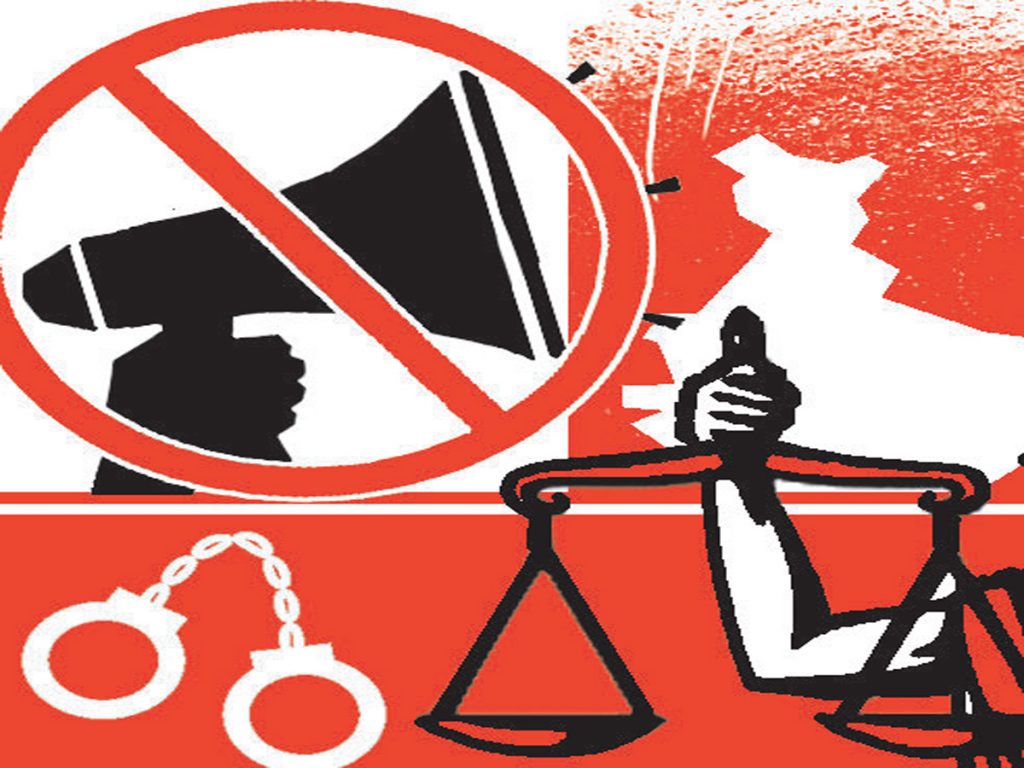
The ban on the Sedition Act will remain in place for the time being. The Supreme Court has accepted the central government’s request to postpone the hearing in this case. The central government has said that it will do something about this issue in the winter session of Parliament. That means there may be some changes. In such a situation, the Center will have to comply with the Supreme Court’s order to stay the Sedition Act until then.
The Supreme Court on Monday adjourned till January 2023 the hearing of the petitions challenging Section 124A of the Indian Penal Code (IPC). The matter was heard before a bench of Chief Justice UU Lalit, Justice Ravindra Bhat and Justice Bela M Trivedi.
Earlier in May, the Supreme Court had banned the use of Sedition Act. The court had said that no fresh offense under Section 124A of the Sedition Act should be filed till the reconsideration. The Center is going to issue a directive to the states in this regard. Along with this, the court had also said that status quo should be maintained in the pending cases regarding the old cases. At that time, the court said that protecting the rights of citizens is the most important thing and said that this law is being misused in the country.
According to an information, between 2010 and 2020, 816 cases of sedition were filed against about 11 thousand people. Of these, 405 Indians have been charged with sedition for criticizing leaders and the government. Sedition cases have increased by 28 per cent every year under the NDA government compared to the UPA-2 government. Section 124A was used to suppress most of the movements.
Sedition is an offense under Section 124(a) of the IPC. Sedition includes contempt or contempt of the Government of India or attempt to provoke, verbally, in writing or in signs and visual form. However, under this, comments made without an attempt to spread hatred or malice are not included in the category of offence. Sedition is a non-bailable cognizable offence. The offense of sedition shall be punishable with imprisonment of either description which may extend to three years and shall also be liable to fine. According to this Act, the accused can be prevented from holding government jobs.
This Act, enacted in 1870, was brought to crush India’s freedom struggle. This 152-year-old law gradually became a tool of power. In such a situation, the government was constantly being accused that what is the use of the British law in independent India?
At the very beginning Attorney General of India R. Venkataramani said, the central government is in the process of reviewing the criminal laws. Something may happen in the next session of Parliament, he said. He requested the Center to give additional time so that appropriate steps can be taken accordingly.
The CJI asked whether the Center had issued directions to prevent its use to adjudicate all pending proceedings and avoid registration of any fresh case under Section 124A. Solicitor General Tushar Mehta replied in the affirmative and said that instructions have been sent to all Chief Secretaries in this regard. CJI UU Lalit said in the order that the AG submitted that as per directions given by this Court in its order dated 11 May 2022, the matter is still attracting the attention of the authorities concerned.
They have been requested to give additional time so that appropriate steps can be taken by the government. He assured the court that in view of the interim directions issued by the court, every interest and concern is protected. Thus there will be no bias. On their request we have postponed it to the second week of January 2023. It was brought to our notice that notices were not issued in some cases. In such cases notice should be issued to Union of India Advocate AK Sharma to file appropriate affidavit within 6 weeks.
The bench disposed of writ petitions filed by Army Major-General SG Wombatkere (retd) and Editors Guild of India, former Union Minister Arun Shourie, TMC MP Mahua Moitra, journalist Anil Chamadia, PUCL, journalists Patricia Mukhim and Anuradha Bhasin and journalists’ associations. were of Assam. Was thinking of a batch of
A bench headed by the then Chief Justice NV Ramana had on May 11, 2022 passed several directions effectively suspending the Sedition Act. The court has urged the central and state governments to refrain from registering FIRs under this provision, when it is pending again. We expect the Central and State Governments to refrain from registering any FIR, continuing investigation or taking coercive steps under Section 124A of the IPC, the order said. The bench also directed to stay all pending petitions, appeals and proceedings regarding charges framed under Section 124A.
Vikas Parashram Meshram
[email protected]











































